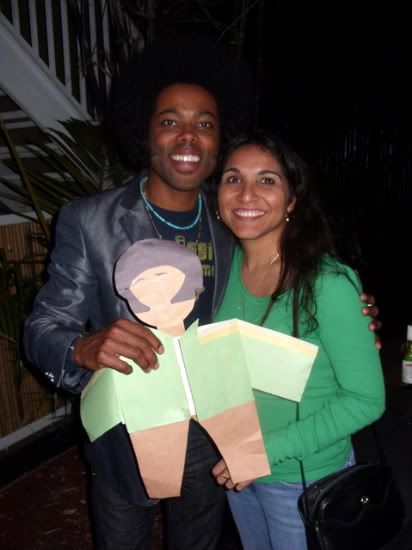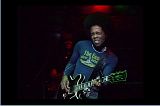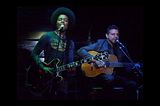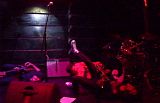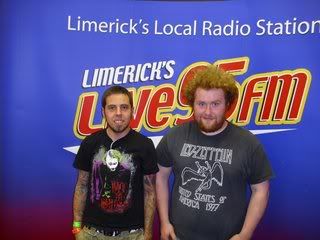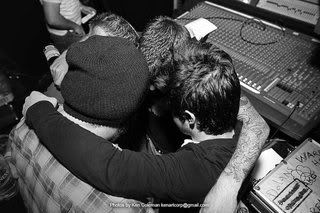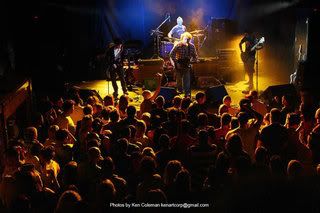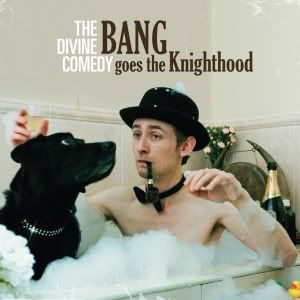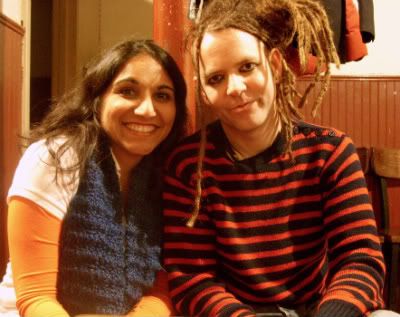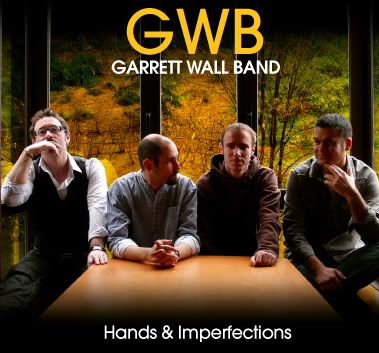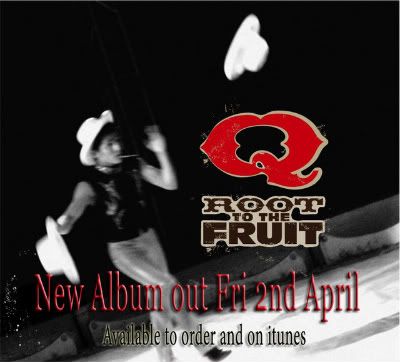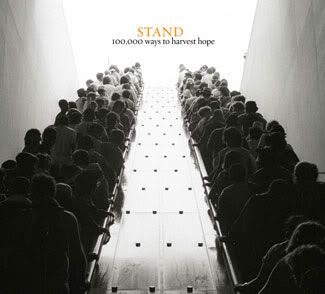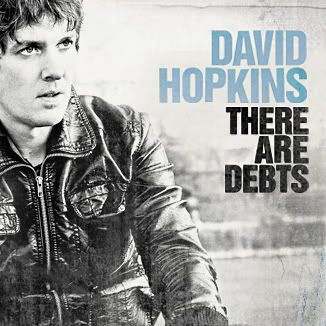The following is a transcript of the podcast:
Episode 1 - A Chat With MundyNatalie Herman: Hi, this is Natalie and I'm here with
Mundy.
Mundy: Hello!
NH: Hi, Mundy!
M: How are you?
NH: Good, how are you?
M: Fairly good.
NH: You're over here in the United States for. . .?
M: I'm here for two-and-a-half days, actually. I got offered a gig last night for the
Craic Festival and I was kinda playing before - or after - no sorry, after the premiere of an Irish movie.
NH: Well, this is actually the 12th annual Craic Fest and you've been over here for the Craic Fest how many times now?
M: I think I've done about four or five of them now.
NH: I know that you were here in 2008.
M: Yep.
NH: You did that one, and you were here in September of last year for the
Wee Craic.
M: Yeah, yeah. Yeah, so I've done Wee Craics and Craics. And I've probably done three Craics and two Wee Craics.
NH: For any of the American people that are listening to this interview that might not understand what "craic" is, it's spelled c-r-a-i-c -
M: - Yeah -
NH: - and it's Irish for. . .?
M: Fun.
NH: For "fun."
M: For madness, fun, good - good times.
NH: Okay.
M: Good times. It's a positive - it's a positive word.
NH: Okay, well that's great. It - it sounds like a lot of fun. Just the word itself sounds like fun.
M: Crrrrraaiic. Yep.
NH: You actually are familiar with the Gaeilge language. Do you speak. . .?
M: I can speak a few little things, but I'm not - I wouldn't be going around Ireland showing off, you know? I have - I . . . No. I can speak a few bits, but I - to be honest, I failed it in my last exams in school. I failed that particular subject, the Irish language. And I actually got French. I got - passed my French.
NH: Oh!
M: I did Irish for 12 years and I did French for five.
NH: Okay, let's have something in French.
M: What does that say about the fuckin' education system? Something in French? (speaks phrase)
NH: What's that?
M: It means, "Give us a cup of coffee."
NH: All right! You were involved in the
Ceol music project.
[note: I have since learned the proper pronunciation. I hope.]M: Yep.
NH: Can you explain what that is?
M: That's basically getting all the kinda musicians in Ireland that are, you know, kinda well-known to put one of their songs in Irish - in the Irish language - and record it. So it's usually kind of a hit, or something that people kind of know, and then it's. . . Kind of the whole idea is that the kids that are in school get to hear somebody that they know from the radio or like or you know, a hero of theirs somehow - to hear them sing something in Irish. It's kind of, basically, a disguise. It's kind of like basically a re-. . .It's just like basically a way of trying to get the kids to learn the language. And so, I've done about three or four of my own songs and I actually did it based on the - the reason that I failed it in my leaving cert and I was kinda wishing one of my heroes at the time sang one of their songs in Irish, which wasn't happening. And also because I wanted to see if I can actually - if one of my songs would sound any good in Irish. And. . .and it turns out that one of them did.
NH: Well I think that's a great idea that - you know, motivating the children by - through example.
M: Yeah, well absolutely - you're kinda going, 'You know, if
Jimi Hendrix, who was one of my heroes when I was in school - I mean, he's kinda part Indian. If he started, kind of, talking about Indian education or something, you know, and reservations and the whole history - you know, I'd be kind of. . .I would have soaked it up! Never happened, but it's all about, basically, when you're actually completely dumbfounded by somebody when they take you down - they can take you down any laneway in life. Cos you'll follow them to the end, you know?
NH: That's true, that's true. It's - our. . .our heroes have a - a great capacity of -
M: Absolutely
NH: - of steering our own lives -
M: Yeah
NH: - and our own courses.
M: In fact, I've actually had to shake off some of my heroes, because I started dressing like them and talking like them, walking like them. Writing songs like them. So I kinda don't listen - I could name a few people here now that I don't listen to anymore, not because I don't love them. It's because I love them too much.
NH: Yep.
M: Not going to name them, though.
NH: We'll leave it a big secret, so.
M: We're all ripping each other off at the end of the day, but you know, it's kinda . . .
NH: Yeah, I guess another example would be
Paul Noonan and the
Talking Heads.
M: Exactly. Yeah.
NH: I mean, you listen to the
Bell X1 - their newest album - you hear how much he was influenced.
M: You hear him wearing - you can. . yeah, he's wearing
David's pajamas [inaudible].
NH: Yeah.
M: Fair play to him, but I don't think he hides that, you know what I mean?
NH: No, no he doesn't. And. . .and. ..
M: But his lyrics, though, are completely his own. I'll give Paul Noonan 100%.
NH: Yeah, what I love about that is the way he . . .he. . .he gives little nods to all of the things that have influenced him, like, you know, the
Oscar Wilde quote here, and, like, you know. . .he - he takes pop culture and he kind of gives a little - his own twist to it.
M: Yeah.
NH: And - and it's kind of a way of engaging - engaging people, I think.
M: I've. . .I've - I've started off a few of my songs with other people's lyrics, just to get me going.
NH: Well, there's no new ideas under the sun.
M: Yeah, yeah, yeah. . .
NH: It's just. . .it's just recycled everywhere. Is there anyone that you've ever met that you were completely starstruck meeting them?
M: Well, the most hypnotic person is
Shane MacGowan.
NH: Yeah?
M: Like literally, it's like. . .[whooshing noise]. It's like. . .could be half nine at nighttime and then. . .it's half eleven in the morning next day, and you're going, 'That was two hours long.' And it's probably because he talks slower than the average person, but he's very interesting as well. And there would be a concoction of accessories there to slow time down, but he blows me away, I have to say. Like, I've met - I did - when I did my
24 Star Hotel,
Madonna was recording one of her albums -
Music - is that what it's called?
Music? - in the same studio in London and she used to come in and out. Her soup used to be in the fridge beside my soup with cellophane over it. 'Mundy' written on top of it and 'Madonna,' and it was like 'Ohh, hi how are you?' You know? Kind of thing. And - but - but you never really get to chat.
Neil Young. I met Neil Young, you know him. But you never really get to hang out with many of them. Some of them you don't want to hang out with. But Shane is the . . .kinda the biggest legend that I've met that I've spent a lot of time with and he just blows my mind.
NH: Have you worked with Shane?
M: He sang on my last album,
Strawberry Blood. And he was - it was the first concert I ever saw, when I was 14, was
The Pogues. In a place called Shinrone in County Offaly, where my dad was born, and where his - all his family are from, actually. Well, near there. So it's a very appropriate thing and I think that's how we got on, is that we kinda share the same neck of the woods and we're fairly . . .we drank from the same stream - do you know that kind of a way?
NH: Yeah.
M: But he's the one who kinda blows me away cos like - if you go on the internet, like, he's hanging out with
Lou Reed, he's hanging out with
Bono, he's hanging out with like
Nick Cave, he's hanging out - you know, it's like how the hell is he even, like, tolerating listening to me, you know?
NH: Well, speaking of Bono, I did want to ask you about the - the
Simon project. The - the Christmas busk. Tell me about that.
M: Well, that was funny, because. . .musicians work in funny ways, but
Glen Hansard being an old friend of mine. . .Glen said, 'Oh, back in town, going busking,' it's . . .it was two or three days before Christmas Eve. He said 'do you want to come play with me outside
Bewleys?" I said, 'Absolutely, what the hell!' So the two of us played and we earned something like 900 euros and 4 p or something when we counted it and we went down that night to Simon Community and gave him in one of - in a big woolly hat that Glen had. We presented him with the money we made. They were blown away, so we went out, we got drunk that night and he said, 'do you fancy doing it on Christmas Eve?' and I was like, 'Absolutely!' 'So, good,' he says, 'All right. I'm going to get - I'm going to round up a bunch of troops.' So he asked
Damien Rice to come,
Declan O'Rourke. . . Ah, no! We met Declan O'Rourke on the road, actually. So he - I gave him my mandolin and I got a guitar. Who else?
Liam Ó Maonlaí - there was plenty of great musicians and Glen said, 'I've asked another few big, big heads to come down - like big hitters.' I was like, 'Who?' I was going, '. . .like Bono?' And he goes, 'Yeah. But! I can't say anything. . .no point in saying it unless he turns up.' He goes, 'It's most likely that he'll turn up.' There was a couple of others that he asked who were a bit vague, but Bono was like, 'I'm definitely going down for a song.' And lo and behold. . .
And Declan O'Rourke went in to get his - cos it was Christmas Eve - he went in to get his DVDs.
NH: Oh no. . .
M: Cos he's going, 'I need to get - I have four presents - four more presents on my list to get.' He goes 'I'll be back in a minute, hold my mandolin.'
NH: Oh, no. . .
M: And he goes in, right, and Bono comes along and sings 'Stand By Me', 'One', 'Knockin' on Heaven's Door', and something else. Then he heads off, and Declan come in, 'Yeah, did I miss anything?'
NH: Oh, no!
M: 'Not really. Bono just came out and sang a few songs.'
NH: Did he believe you?
M: He was going, 'Fuck off!' So, I - yeah, he was. . .he was - his DVDs. He was gonna - he felt like burning them.
NH: I would imagine that's - that's a -
M: - But he was cool, like, I mean - Bono came in and he kinda - I met - I shook hands with him twice, I think, before. Cos I won a
Meteor Award for Best Irish Male years ago. And him and
Van Morrison and
Paul Brady were in the same category. And I went up to him in a nightclub and was like, 'Sorry about that, Bono.' And he was like, 'You're a good songwriter.' And then he just left. I mean I think he just, fucking. . was like 'Get me away from that big bog man!' So, he wasn't into . . .
NH: And you were up for a. . .
M: He's a hero of mine, by the way.
NH: Oh, he's a hero of mine, as well.
M: Yeah.
NH: I think there's very few people that don't appreciate U2 in at least some way. They - they've really made
M: You gotta hand it to - you know, like - Irish people go, 'Ahh, he's a bit of a gobshite, and he's this and he's' - gobshite is a big word in Ireland. Gob. Shite. Which probably means that you talk - because your gob is your mouth. But everybody knows that he's put his neck on the train tracks and - for . . . for the world. And for life, and for famine, and for everything. And he's allowed to go around with his swagger. You know. Jesus! You have no problems with God. You kinda go, 'Listen, I'm gonna get off my face tonight, I've done enough work. Can I have no Catholic guilt in the morning? I don't want any guilt, any . . ." God probably goes, "Here's a little receipt."
NH: Your hall pass!
M: This means so when you're walking around with your guilt, you just kinda go, 'Oh, God gave me this piece of paper.'
NH: 'Please excuse Bono for his bad behaviour.'
M: Yeah, yeah! 'Please let - don't make Bono feel guilty today, cos he was a good boy.' Or 'he has done good. And he was really bold last night.'
NH: I have a lot of people that, when they find out I'm a U2 fan, they try to - "Oh, well, you know, Bono's so' - you know - 'he's so egotistical and he's so - he's so this' . . .well, yeah, he kinda - that's kinda the charm of him, though!
M: He's gotta be. Geez, he's gotta be. When he came - well, like when he came in, busking wouldn't be - like he would have come . . .it was probably punk, like, when U2. . . like - so busking would be - would have been just so, like, not cool. He would have been - I don't know what. But would have been kinda underground gigs, people spitting at each other and punching each other and fucking piercing their faces and I dunno. You know, barbed wire - you know it's that - you know just - it's all conflict and trouble and the was a lot of problems in the 70s, right? But - so the idea of Bono coming onto Grafton street busking without a microphone or anything to hang out of was like amazing! And he still - he. . .he . . .it was like a
360 gig, you know?
NH: Yeah! Yeah.
M: There's a thousand people sitting there - some were sitting, some were standing - it's like an amphitheatre of people and he was giving it as if he was on stage to like 80,000 people in
Croke Park.
NH: And waving his umbrella. . .
M: He - yeah! But he was just giving it all that - you know, the way he like jumps out of his skin kind of thing. And - yeah. Geez, you can't knock a man for that.
NH: And anybody who missed out on that can go on
Youtube and search -
M: He sang - he did his little kinda - you know the way he does an ad lib thing?
NH: Oh yeah.
M: He goes - and he called me 'Monday' -
NH: Monday.
M: And Damien, and Liam - and you know he kinda named everybody in the group, and he's got - he's definitely got the political . . .politician's mind as well in that like - I'm sure before he went there he was, 'All right, who are the lads in the circle?'
NH: But, you know, that - that shows -
M: - Care -
NH: Yeah! It does. Because he could have gone in there and - well, first he could have not shown up.
M: Yeah.
NH: He could have gone in there and said, 'you know, I don't care who any of you people are, I'm taking over this and it's going to be all about me, and. . '
M: I, actually, take my hat off to him.
NH: Well, you know, speaking of this whole 'egotistical musician' thing, what do you think the biggest trapping as a musician is? Being, you know, 'out there.' Being a popular musician. What's the biggest trapping?
M: The biggest trapping is a little bit of success. Because you just want a little bit more all the fucking time. And I've been very lucky. Fortunate. I've been lying on a soft couch in Ireland for a long time. I'm getting to play out of the country a good bit now, but. . .you were at the gig last night. Like, having to set up the P.A. and tell the sound guy that one of the monitors isn't working. And he goes, 'well it is working' and 'well, no it's not working.' And then you go, 'Well, because the fucking lead isn't plugged in, like." I'm kinda - it's been awhile since I've had to do all that kind of stuff. So the trapping in life is a taste of something good. Just a little bit, though. Because you can't get overindulgent - you know, you want more all the time, and that's just. . .I think that's the way . . .It's like - it's like being - experiencing the best, like, the most beautiful sunshine in a park and having a picnic. Makes you want to live for the rest of your life, because you've experienced it once. Riding a wave for the first time, riding a horse, jumping over a fence, getting over a fence, overcoming illness, telling somebody that you're sorry and realize - you know . . . it's like that's probably one of the biggest fucking weird things ever.
NH: Yeah, and you've played some really major venues in Ireland. . .
M: Yeah. I've played kinda everywhere you can play. Now, but I didn't headline everywhere that you can headline. But, I've been involved through some shape or form. And everybody kinda knows my name. And if they don't, they should. No. I. . . no. You know. I'm . . I'm . . only - yeah. I'm actually only kinda joking about that, but, like I - yeah, I've been involved to the point where I think I'm going to have to try and sow my seeds across different waters to - you know, reap them back at home again. You know, to another lev- I'm actually thinking of changing my name for an album. .
NH: Okay.
M: No, I'm not thinking. I'm doing it. I'm gonna go under my own name. Mundy's my nickname, but. . .so I'm doing a covers album at the moment, which is a collective of American songs that have influenced me over the years. And I'm going to go under Edmond John Enright. And basically - if I put it out under 'Mundy' it would kinda be just too. . .'Mundy'-ish, so I need to give that - that five letters a break. You know? And do it the way I do it. Without putting a cowboy hat on or hoody. Whatever I wear. You know? Just do it the way I do it in the bath.
NH: Well that's - that's -
M: - Raw.
NH: That's a really - a refreshing thing to - and it's always good, I feel, to see the people that you admire are also fans. You know?
M: Yeah.
NH: Because I a huge fan. I'm a huge fan of a lot of people. And I have always been influenced by what the people that I admire are influenced by. And I've - you know, I kinda . . .you follow that road and you keep finding new things. And some of the things that they admire, you might not care for, but some of the things, you might really love. In fact, I found U2 through somebody else that I admired. They were a U2 fan, and so I said, 'Well, let me check this band out.' And this was, you know, way back when.
M: Well, I'm . . .I'm - suppose recording my own songs, I always try. . .I always hope and wonder and wish that my heroes would appreciate them. Right? And then that can become a bloody nuisance, because you're kinda constantly not pleasing yourself, you're pleasing these fucking heroes of yours. You know, rather than being real, so, me doing my heroes songs, I'm actually pleasing myself. And I don't give a shit what they think.
NH: Well, that's -
M: Do you know? It's like - it's the one of the - I . . .listen. Anytime I record an album, I listen to it probably a few hundred times and kinda go, 'Wow, this is amazing', right? And then I kinda get - when it gets released, I kinda go, 'I'm sick of it.' But this covers thing, I'm kinda going, 'I don't care what
Bob Dylan thinks about 'Buckets of Rain.' I don't care what
Simon and Garfunkel think about 'Cathy's Song.' I don't care what
Jimmie Rodgers thinks about 'Peach Picking Time In Georgia' or just - I'm letting them entertain me rather than me entertaining them, do you know what I mean? So, you kinda have to let life - you have to stand on your head sometimes and think about what's bugging you and how to . . . Remember I texted
Debbie earlier on going 'I'm at the bar with a Bloody Mary saying my prayers' or something like that. I was kinda going , 'Maybe I shouldn't be texting that to her, I should be writing it in my book.' Cos it's probably a lyric, you know? And, actually, it's very similar to what
Warren Zevon would have said - come out with, so. I actually did put it into my phone. But, like, that's the thing, you know? You kinda go, okay, if Im hungover all the time, I can't be sitting around complaining about looking for, like, headache tablets. I should write about it. I should write about the loneliness sitting in a bar having a Bloody Mary, doing all that. Everybody else has been through it. You know, it's. . .it's - it's like - you can turn an illness on its side and make gold out of it, you know what I mean? I'm not saying like hanging a hangover is an illness, but it's . . .it's a mild. . .it's a mild one!
NH: An example of that would be
Frank McCourt writing about his childhood.
M: Yeah
NH: I mean, he could sit and whinge about it forever, or, you know, he could find a way -
M: Turn it on - turn it-
NH: - to make - to make it - to find peace with it. And also, to inspire so many other people.
M: Yeah.
NH: So, your songs. Is there any song of yours that you get tired of performing? T they shout up at you and you're like, 'I don't wanna sing that song!'
M: I have a - before I covered the 'Galway Girl,' I used to be sick of singing 'July.' Now everyone shouts for 'Galway Girl,' I'm like, 'I love 'July.'' But I used to be fucking sick of 'July.' You know, it's funny how. . .how. . .how things turn around. And you've got to be careful about what you cover, you know? You shouldn't do it for a joke. Because people might actually really like it. And you might have to do it for the rest of your life.
NH: Well, it's funny -
M: But it's a good song!
NH: The first time I ever heard 'Galway Girl' it was either late '90s or early 2000s - I don't even remember when the song was written. But I went to go see
Mary Chapin Carpenter and she had two opening acts that I had not heard of - either one of them. But, the first one I didn't care for very much. The second one came out; he played some songs. He sounded pretty good, but he really captured my attention when he sang a song called 'Galway Girl.'
M: Who did? Oh, one of the covers? One of the opening acts?
NH: Yeah. And I - you know, i was already starting to, you know, be really into the Irish culture. I was very into that, so to have this guy come out here and sing this song 'Galway Girl,' that was a really . . . So I wrote down the name of the song, and I wrote down the guy's name and went home and tried to track it down. I couldn't find it, whatever. . .
M: Who was it?
NH:
Steve Earle!
M: Supporting Mary Chapin Carpenter?
NH: Yeah. Steve Earle.
M: No way. . .
NH: And Steve Earle wrote 'Galway Girl.'
M: Yeah, I'm. . . I'm aware of that.
NH: Yeah, well, some people might not know -
M: You know he dedicated it to me in the
Olympia. The last time he was in Ireland.
NH: He did?
M: Yeah. He said . . .he called me 'The Midlander' - because I'm from the midland of Ireland. He said, 'I'm responsible for writing this song, I've heard from many of my Irish friends that it's the biggest wedding song' . . .well, it's played at weddings and funerals and all sorts - it's just one of those - it's become bigger than itself, you know? And he said that '
Sharon Shannon played on the song and she's as responsible as I am. But the most responsible person for making it what it is now is The Midlander up there in the balcony, Mundy! Yay!' I was like, 'fucking. . .my God!!'
NH: That. . .that
M: You know, cos he is. . .he - I was a big hero of his. And i didn't - I was asked to do that song by a DJ. I didn't go out of my way to learn it. I was actually asked to learn it for a radio show.
NH: Really?
M: That's how it happened. A guy called Tom Dunne. He was an Irish DJ. Asked myself and Sharon would we do a collaboration on the night of his show from a venue. I actually read it off a sheet. And then there was people texting, 'Oh. play that again, play that again.' And then I did a live album, and then I asked her out as - for the last song. And that's how it look off. So it wasn't like a - me kinda going, 'this is going to be really successful or catchy or . . "
NH: Well, I was really kind of surprised when I came across your version of 'Galway Girl' because I was like, 'That's the song that I heard!' just. . . and I - you know, I didn't really know who sang it, who wrote it, whatever. And then when I looked it up, you know, I was looking at your album and it said 'S. Earle' and I was like, 'I heard him perform that!' I saw it the first time I heard that. So that was kind of a really cool thing for me.
Today FM. You did another cover.
M: Oh, with
Gemma?
NH: No, it - for - it's on - it's on one of the -
M: 'Grandma Got Run Over By a Reindeer'?
NH: Did you do 'Grandma Got Run Over By a Reindeer'?
M: Yeah, I've done that one.
NH: I don't think I've heard that one! That - I've gotta look for that one!
M: What song would it be, then?
NH: It was on one of the
M:
Shakira?
NH: That's the one. On the
Even Better Than The Real Thing. How did you come about doing that one?
M: Well, unfortunately, what happens is with radio, they kinda go, 'Your new album's out! This is Mundy! This is his new album
Strawberry Blood' or whatever. 'Will you learn a cover?' And you go, 'Well, I'll learn a cover, but I'm not fucking promoting my album, what's the point?' And they're going 'Well, you're not coming on the radio show unless you sing a stupid cover of somebody's that you wouldn't normally do.' So you kinda go, 'Well, I have to promote my album, and they give you three songs, and I just picked 'Wherever, Whenever' by Shakira. Cos she talks about her breasts being smaller than mountains or something.'
NH: Yes, that was -
M: But she's got a big booty.
NH: - a particularly interesting moment for me, to hear you sing that.
M: I thought she was very open about the whole thing.
NH: If you had to completely rework any one of your -
M: Shakira? If I had to rework what? One of my own songs?
NH: One of your own songs. Which one would it be, and for what reason?
M: Rework as in get someone else to sing it? Or . . .rearrange it myself?
NH: I mean, yeah. Take it apart, but it back together.
M: Ohh . . . Straight to mind is 'To You I Bestow', which is the one that was on the
Romeo + Juliet soundtrack. I do a really nice finger-picking-y version of it. Because I think that my band now - we've been playing the song so long now, we're just fucking - kinda throwing them out there, you know? I don't think the band feels my emotions sometimes. And that's not - no problem to them. I'm not giving out about it, but I'm just saying. You do churn out lyrics sometimes. You now, you kind of - it has a bit of feeling that's going into some of these words. So I do actually a very slow version. Kinda
Leonard-Cohen-y style where the words speak and music is only a background thing. Rather than the drummer, you know, and the rest of it kinda being brash. So that's one that comes to mind.
NH: I used to work in the music department of a shop when that soundtrack came out. And we could not keep it in stock.
M: Really?
NH: Ever. Ever. Ever. It was always gone. I think for about the first three months after it came out it was never in stock. The minute we got some in, they were gone off the shelves.
M: Well, I'm fond of my bacon and cabbage, and it's always put bacon on my plate. That's all. So.
NH: Now, you've got a big following. And since you do play in some small - smaller venues, you've gotten to know some of your fans on a personal basis.
M: Yeah.
NH: They get to come up to you and talk to you and everything. Have you ever had problems with privacy issues because of this?
M: Oh, yeah. But, that's probably down to my own trust. I kinda trust people. I always give them a chance. Everyone gets three chances with me. And I hate it when people abuse the first chance. You know?
NH: Yeah.
M: I've had a few fucking idiots come and . . .try - try to interrupt my life, you know? But they're gone. You know? And that's totally down to me being just a wide open space, to come and. . . You know the funny thing is, people - the more friendly you are to them, or the more open the shutters are, they kind of have a good look around and then start stealing. You know?
NH: Yeah.
It's like, they don't actually come in and go, 'Thanks for letting me in your room, and they don't tidy up for you, they kinda just fucking have a little piss on your couch and then they split, you know? So, and it's terrible, but I think I'm going to carry on being an open person. Because I don't think - there's - I think there's less bad people out there than there are good people. So I don't think you should judge, but yeah.
NH: Well, for your fans that are the good people -
M: Yeah -
NH: What would you like them to know about you, personally? What's something that you most wish that your fans knew about you? That maybe is not something that people know?
M: That I make a mean tuna melt.
NH: Do you? That sounds delicious. You'll have to make me one.
M: That's . . that's - well I'm - I smoke one cigarette every day.
NH: Really?
M: Yeah
NH: How'd you - how'd you come about that?
M: I smoked about ten last night. But I hadn't been out for ten days. No, I just - what do. . .? I don't know. I've got driving lessons. I only learned to drive four years ago.
NH: Did you really?
M: Now I'm the king of the road.
NH: Are you gonna sing us that song?
M: (starts to sing then stops) Yes, I'll sing that later. That'll be an application.
NH: Okay. All right, well thank you so much for your time.
M: Okay.
NH: It's - it's been great and - enjoy your trip back home.
M: I hope it was good enough.
NH: It should be great!
http://www.mundy.ie
http://www.myspace.com/mundyirl
http://www.twitter.com/mundyirl
http://www.ilike.com/artist/mundy
http://www.reverbnation.com/mundy
http://www.youtube.com/mundyirl
